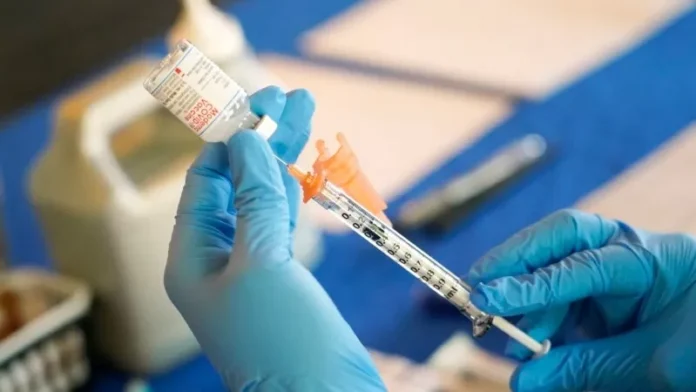A recent decision by the board of Southwest District Health in Idaho has caused widespread concern and raised questions about the role of public health departments in the fight against COVID-19. In a narrow 4-3 vote, the board has decided to stop providing COVID-19 vaccinations to residents in six counties, making it the first in the nation to do so.
Vaccinations are an essential function of a public health department, and it is concerning that policymakers in other states, such as Texas and Florida, have also taken steps to limit the promotion and availability of these life-saving vaccines. While some health departments have stopped offering vaccines due to low demand or cost factors, this decision by Southwest District Health is unique in that it is based on a judgment of the medical product itself.
The six-county district along the Idaho-Oregon border includes three counties in the Boise metropolitan area. Demand for COVID-19 vaccines in the health district has declined, with only 64 shots given in 2021 compared to 1,601 in 2020. This decrease in demand is not limited to just COVID-19 vaccines; Idaho also has the highest childhood vaccination exemption rate in the nation, making it clear that there is a larger issue at play.
Last year, the Southwest District Health Department was faced with a rare measles outbreak that sickened 10 people. This further highlights the importance of vaccinations not just for COVID-19 but for other preventable diseases as well. However, on October 22nd, the board voted in favor of the ban, despite the medical director of Southwest District Health, Dr. Perry Jansen, testifying to the necessity of the COVID-19 vaccine.
Dr. Jansen emphasized that the decision to offer vaccines is always a thoughtful one, taking into consideration the risks and benefits for each individual. He pleaded with the board to allow the department to continue providing the vaccines, but unfortunately, his request fell on deaf ears. Instead, over 290 public comments, many of which were against vaccine mandates and taxpayer funding, were taken into account. It is important to note that neither of these factors were at play in the district, making the decision even more perplexing.
Many of these comments came from individuals who are known for their anti-vaccine views and have been actively spreading misinformation about COVID-19 vaccines. Dr. Peter McCullough, a Texas cardiologist who sells “contagion emergency kits” containing unproven drugs, was among those who spoke at the meeting. This raises serious concerns about the credibility of the comments and the decision made by the board.
Board Chairman Kelly Aberasturi, who has publicly stated his skepticism towards COVID-19 vaccines and national public health leaders, expressed his disappointment with the board’s decision. He also acknowledged that the board may have overstepped the boundary between patients and their doctors, and this could potentially set a dangerous precedent for future decisions regarding vaccines and treatments.
Those in favor of the ban argued that people can get vaccinated elsewhere and that providing the shots was equivalent to signing off on their safety. However, this argument fails to consider the population that relies on Southwest District Health for vaccinations – including those without housing, homebound individuals, and residents of long-term care facilities or in the immigration process. For these vulnerable individuals, the health department was their only option for getting vaccinated.
Aberasturi, who has personally experienced homelessness in his lifetime, emphasized the importance of stepping in and helping those in need. It is concerning that some board members do not have the same understanding and empathy towards these individuals. As the board’s primary responsibility is to care for the “health and well-being” of the district’s residents, this decision raises questions about their due diligence and consideration for the community.
The Idaho Department of Health and Welfare has stated that they “recommend that people consider the COVID-19 vaccine,” which highlights the importance of vaccinations in controlling the spread of the virus. While Southwest District Health has stopped offering the vaccine, they have made it clear that it is still available at community health centers for those who are uninsured.
In conclusion, the decision made by the board of Southwest District Health to stop providing COVID-19 vaccinations is concerning and has raised numerous questions about the role of public health departments. Vaccinations have proven to be a crucial tool in fighting this deadly virus, and it is imperative that all individuals have access to them. It is our hope that the board will reconsider their decision and prioritize the health and well-being of the

